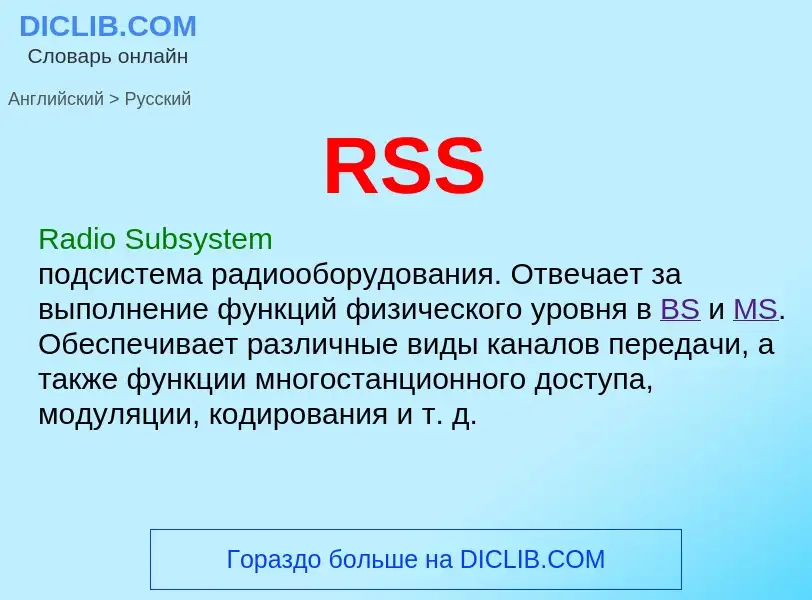Traducción y análisis de palabras por inteligencia artificial ChatGPT
En esta página puede obtener un análisis detallado de una palabra o frase, producido utilizando la mejor tecnología de inteligencia artificial hasta la fecha:
- cómo se usa la palabra
- frecuencia de uso
- se utiliza con más frecuencia en el habla oral o escrita
- opciones de traducción
- ejemplos de uso (varias frases con traducción)
- etimología
RSS - traducción al ruso
общая лексика
сборщик контента
организация, объединяющая для заказчика информацию из различных источников
Смотрите также
общая лексика
агрегатор
организация, собирающая и агрегирующая информацию о товарах, услугах и их поставщиках и предоставляющая её через веб-сайт, где может работать система поддержки принятия решений, позволяющая пользователям выбирать товары и услуги конкурирующих компаний
Wikipedia
RSS (RDF Site Summary or Really Simple Syndication) is a web feed that allows users and applications to access updates to websites in a standardized, computer-readable format. Subscribing to RSS feeds can allow a user to keep track of many different websites in a single news aggregator, which constantly monitor sites for new content, removing the need for the user to manually check them. News aggregators (or "RSS readers") can be built into a browser, installed on a desktop computer, or installed on a mobile device.
Websites usually use RSS feeds to publish frequently updated information, such as blog entries, news headlines, episodes of audio and video series, or for distributing podcasts. An RSS document (called "feed", "web feed", or "channel") includes full or summarized text, and metadata, like publishing date and author's name. RSS formats are specified using a generic XML file.
Although RSS formats have evolved from as early as March 1999, it was between 2005 and 2006 when RSS gained widespread use, and the ("") icon was decided upon by several major web browsers. RSS feed data is presented to users using software called a news aggregator and the passing of content is called web syndication. Users subscribe to feeds either by entering a feed's URI into the reader or by clicking on the browser's feed icon. The RSS reader checks the user's feeds regularly for new information and can automatically download it, if that function is enabled.


